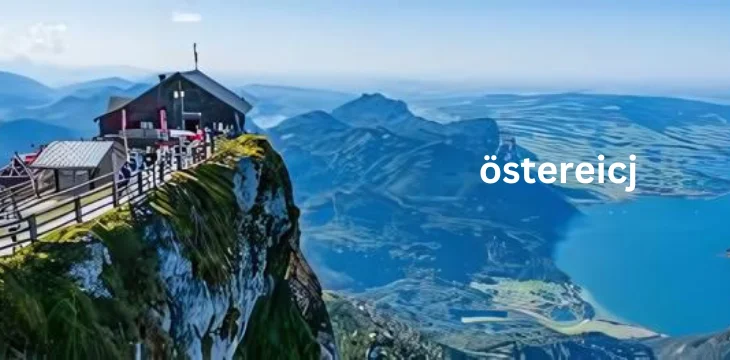
Exploring Östereich: A Journey Through Austria’s Cultural and Natural Wonders
Austria’s history is marked by its role as a significant player in Östereich European politics and culture. The area was inhabited by Celts before becoming part of the Roman Empire. Over the centuries, Austria transformed from a duchy to the powerful Austro-Hungarian Empire, which dominated Central Europe until its dissolution after World War I. The legacy of this Östereich tumultuous past can still be seen in the architecture, traditions, and cultural influences Östereich present today.
Cultural Heritage Östereich
Art and Music
Austria is renowned for its contributions to art and music. The country was the birthplace of iconic composers such as Wolfgang Amadeus Mozart, Ludwig van Beethoven, and Franz Schubert. Music festivals and concerts are prevalent throughout the year, celebrating both classical and contemporary styles. The Vienna State Opera is a world-renowned venue that showcases the country’s rich musical heritage.
In addition to music, Austria boasts a vibrant art scene, with museums Östereich like the Belvedere and the Kunsthistorisches Museum housing masterpieces from renowned artists. The cultural landscape is further enriched by the presence of numerous galleries, theaters, Östereich and historical sites that celebrate Austria’s artistic legacy.
Festivals and Traditions
Austrian culture is deeply rooted in tradition, with various festivals celebrated throughout the year. One of the most famous is the Vienna Ball Season, where elegant balls take place in historic venues, showcasing traditional music and dance. Other notable events include the Salzburg Festival, which features opera, theater, and classical music performances, and the Christmas markets that fill the cities with holiday cheer.
Exploring Austria’s Cities
Vienna
The capital city, Vienna, is a blend of imperial history and modern charm. Visitors can explore the Schönbrunn Palace, a UNESCO World Heritage site, and stroll through the historic city center, which is filled with stunning architecture and vibrant cafés. The city’s coffeehouse culture is famous, offering a unique experience of savoring delicious pastries while soaking in the artistic ambiance.
Salzburg
Famous as the birthplace of Mozart, Salzburg is a picturesque city known for its baroque architecture and stunning alpine backdrop. The Hohensalzburg Fortress offers panoramic views, while the Mirabell Palace and Gardens provide a serene escape. The city is also the filming location for “The Sound of Music,” attracting fans from around the globe.
Innsbruck
Nestled in the Alps, Innsbruck is a haven for outdoor enthusiasts. Known for its winter sports, the city also boasts a rich history, evident in its medieval old town and the iconic Golden Roof. Innsbruck is an excellent base for exploring the surrounding mountains, making it a perfect destination for both adventure and culture.
Natural Wonders of Austria
The Austrian Alps
The Austrian Alps are a highlight for nature lovers and adventure seekers. With breathtaking landscapes, hiking trails, and skiing opportunities, the Alps provide a playground for outdoor activities year-round. The breathtaking scenery offers a perfect backdrop for exploring charming alpine villages and enjoying traditional Austrian hospitality.
Lakes and Rivers
Austria is home to stunning lakes and rivers, including the crystal-clear Wolfgangsee and the majestic Danube River. These natural wonders offer opportunities for swimming, boating, and leisurely strolls along the shores. The picturesque landscapes are a photographer’s dream, capturing the essence of Austria’s serene beauty.
Culinary Delights
Austrian cuisine is a reflection of its cultural influences and traditions. From hearty dishes like Wiener Schnitzel to delightful desserts like Sachertorte, the country offers a variety of culinary experiences. Local wines and beers complement the rich flavors, making dining in Austria a memorable experience. Don’t forget to try the traditional Apfelstrudel, a delicious apple pastry that has become a symbol of Austrian cuisine.
Conclusion
Austria, or Öster-eich, is a treasure trove of cultural and natural wonders. With its rich history, vibrant cities, breathtaking landscapes, and delicious cuisine, it is a destination that offers something for everyone. Whether you’re exploring the artistic heritage of Vienna, the musical charm of Salzburg, or the natural beauty of the Alps, Austria promises an unforgettable experience that will leave you wanting more.
FAQs
1. What is the best time to visit Austria?
The best time to visit Austria is during spring (April to June) and fall (September to October) when the weather is pleasant, and there are fewer tourists.
2. Is Austria a good destination for outdoor activities?
Yes, Austria is a fantastic destination for outdoor activities, especially skiing in the winter and hiking or biking in the summer.
3. What are some must-try dishes in Austria?
Some must-try dishes include Wiener Schnitzel, Sachertorte, and Apfelstrudel. Don’t forget to sample local wines and beers as well!
4. Are there any famous festivals in Austria?
Yes, Austria hosts many famous festivals, including the Vienna Ball Season, the Salzburg Festival, and various Christmas markets throughout the country.
5. How can I get around Austria?
Austria has an efficient public transportation system, including trains and buses, making it easy to travel between cities and explore the countryside.
4o mini


